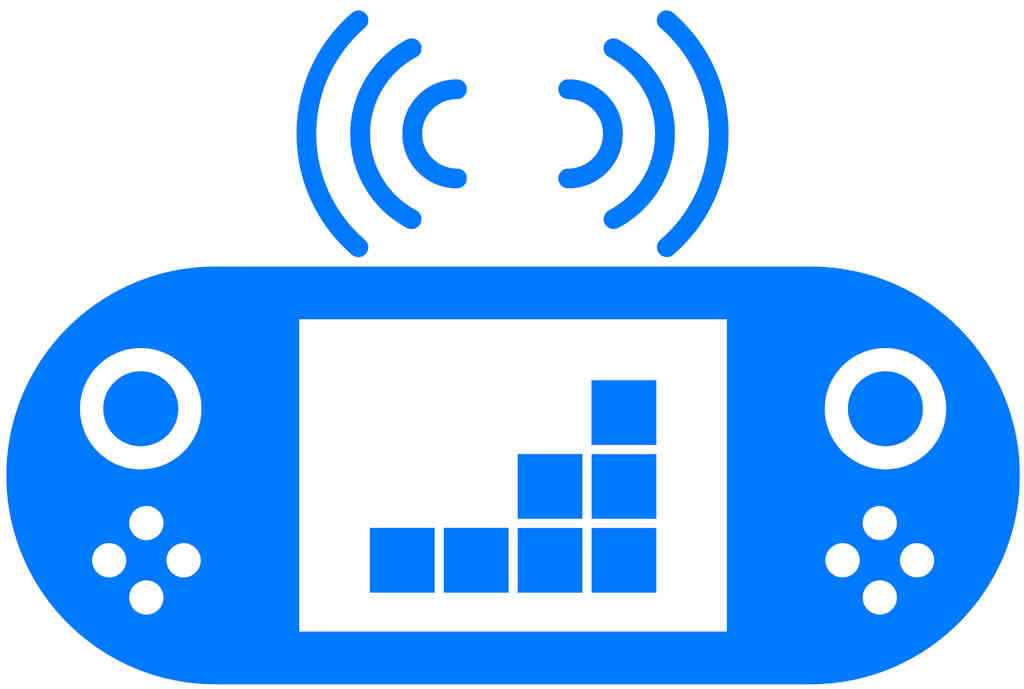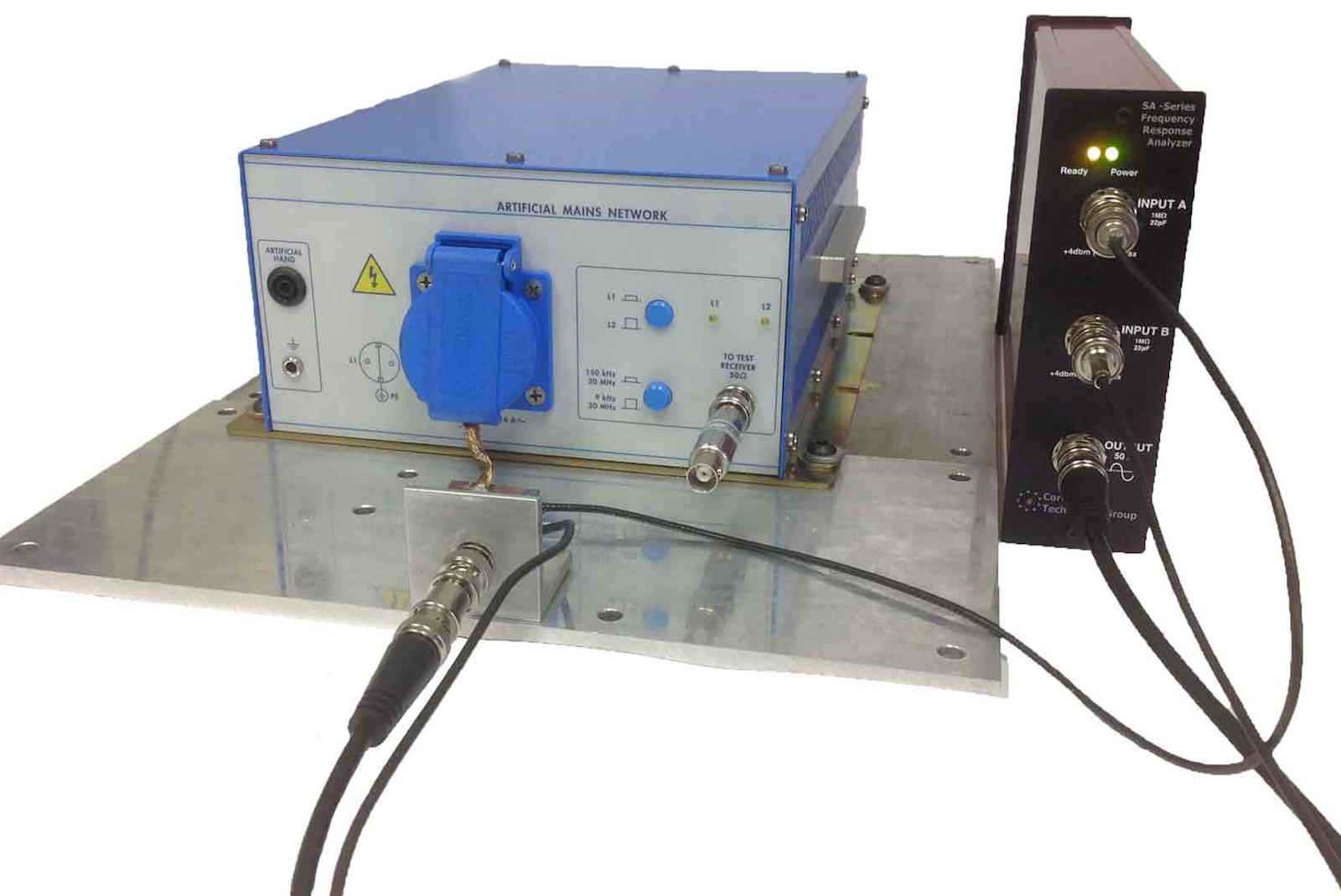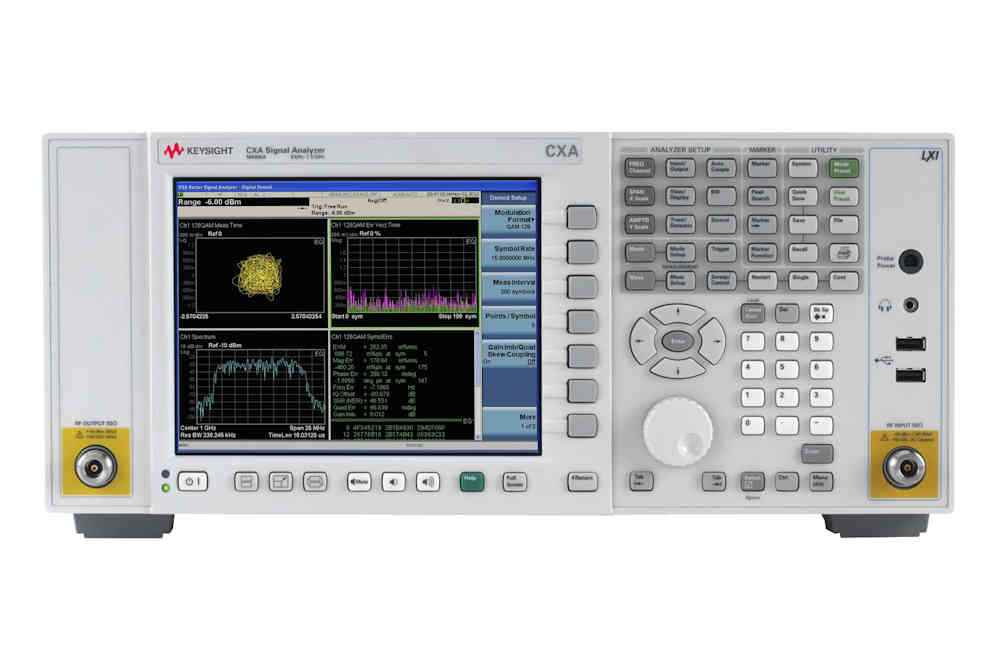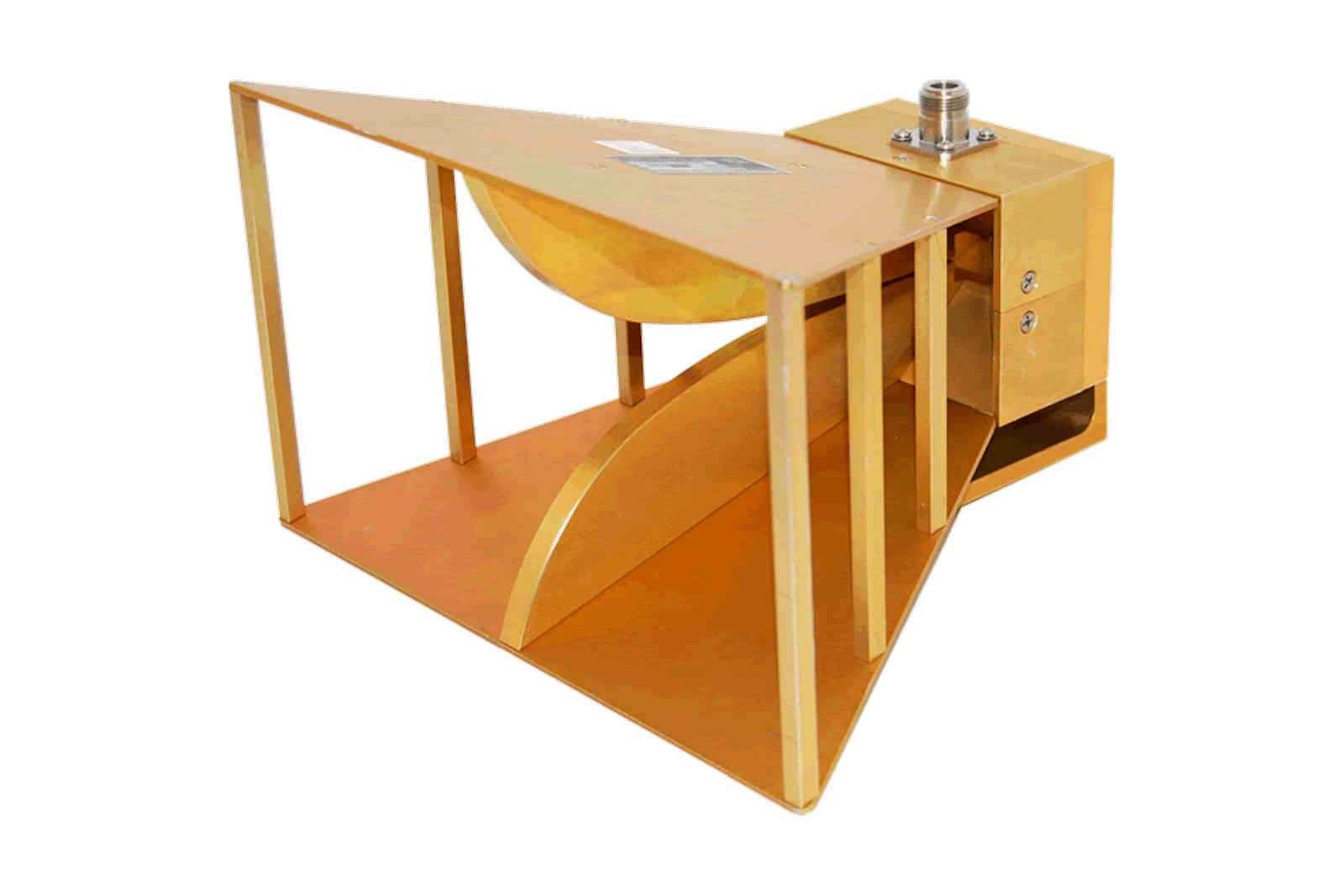EMC Testing
What is EMC testing, and why does my device need to be tested?

Electromagnetic Interference (EMI)
Electromagnetic Interference (EMI) is the natural phenomenon of electronic devices to produce electromagnetic waves that spread through free space, and create interference with other devices. Do you remember your grandparents TV flickering whenever they operated the vacuum cleaner? That is an example of electromagnetic interference.
Electromagnetic Compatibility (EMC) Testing
Electromagnetic compatibility (EMC) testing is the process by which the EMI of your device is measured against a required standard. Depending on where you want to sell your product, there are different requirements for each regulatory body that regulates that market region.

Typical EMC Tests

Conducted Emissions
EMI conducted through cables
If your device uses an AC adapter or has external cables, you will have to measure the amount of EMI coming out of each cable using a LISN.

Radiated Emissions
EMI radiating out a device
Most modern electronics with microcontrollers generate low levels of EMI that radiate out into free space; this will be measured to ensure regulatory compliance.

Immunity Testing
Ensure device is immune to EMI
All electronics produce levels of EMI. Your device is exposed to certain levels of EMI, and is evaluated to ensure it still works correctly.
Is EMC Testing Required?
EMC is the absolute bare minimum testing required for any modern electronic device. Let us help you through the process.
Typical EMC testing starts at $999.
Get Quote

EMC Testing in the USA
What exactly does the FCC require?
As an American business the majority of our testing is FCC related. The FCC requires that any digital device that operates at 9 kHz or higher must be reviewed and tested under FCC Part 15 Regulations. If you have not built a wireless transmitter, typically you will be testing under 47 CFR Part 15, Subpart B - Unintentional Radiators. These are commonly referred to as Class B devices.
What is a Class B device?
The FCC defines a Class B device as “A digital device that is marketed for use in a residential environment notwithstanding use in commercial, business and industrial environments. Examples of such devices include, but are not limited to, personal computers, calculators, and similar electronic devices that are marketed for use by the general public.”
What if I have a wireless transmitter?
If you have a wireless transmitter, you will still test the device under FCC Part 15; however, you will need to conduct extra testing. The FCC requires a certification process where you must test and submit the results to the FCC. For more information go to our wireless testing section.
What sort of tests does the FCC conduct for Part 15?
For typical FCC EMC testing under Part 15, the FCC will measure the unintentional emissions of your device and the conducted emissions of your device. In other countries, immunity testing is often required -- but not for testing with the FCC under Part 15.
What will I need to provide the test lab?
For EMC testing of a Class B device, you will need to have a final production prototype. This means the final PCB revision, enclosures, and the final power supply are all sent to the test lab. You will want production ready firmware on your device. Testing must be done on the final versions of the product, as the enclosure and power supply can play a large part in the measured emissions. For non class B devices and other FCC subparts, the testing process is largely the same.
What other regulations might my device fall under?
Other relevant US Standards include FCC Part 18 (Class A or Class B) NRC Regulatory Guide 1.180, EPRI TR-102323, RF Exposure, and IEEE-ST-299 for radiated and conducted emissions testing. The easiest way to determine your exact testing requirements is to submit your project details and one of our experienced engineers will work directly with you to identify all relevant testing based on your product's functionality.
We want to sell in our products in other markets besides the USA
That is absolutely no problem. Our network of tests labs conducts EMC testing for any markets you want to sell in. We have conducted testing for the USA, European Union, China, Canada, Mexico, Japan, Korea, Australia, the Middle East, and Africa. It can take us a bit longer to provide a full quote if you need testing in smaller markets. On the whole, EMC testing is very similiar from country to country.
How long should the testing process take?
Depending on how ready your product is, EMC testing is pretty fast as the results are not filed with the FCC. We would think 3 weeks to have your EMC testing completed, and the final reports sent over.








